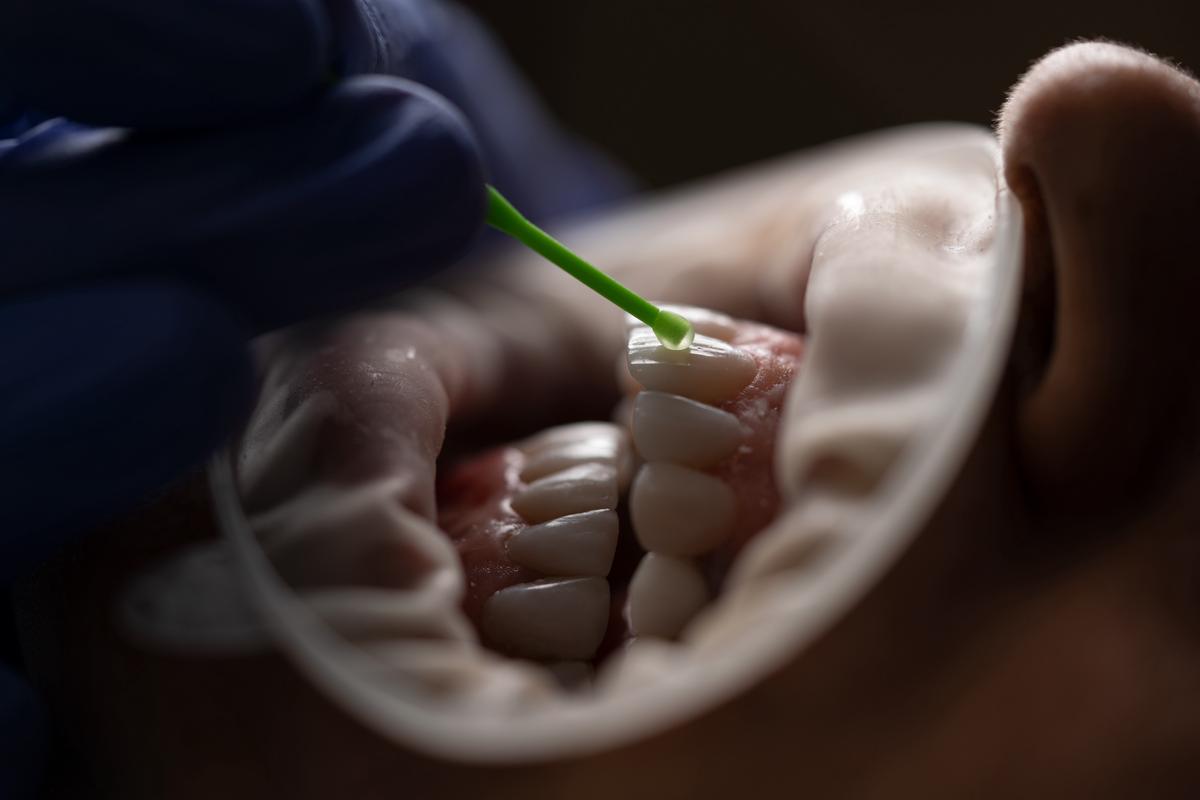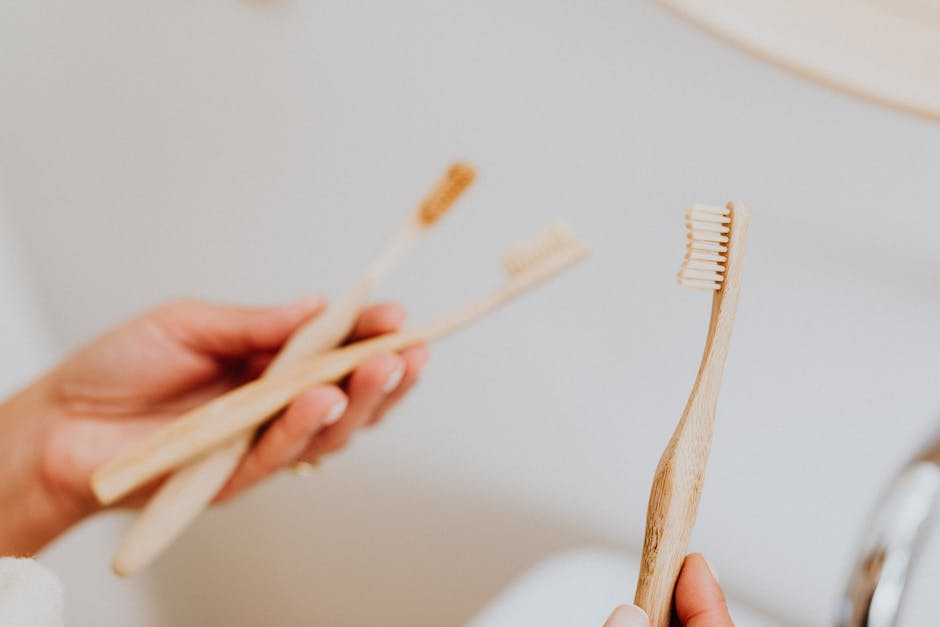Have you ever woken up in a cold sweat after dreaming your teeth were falling out or decaying? You are not alone. Many people worldwide have experienced the same unsettling image during their slumber. Dreams have intrigued scholars, scientists, and the average man since the beginning of time. Their importance in our lives, their origins, and how different cultures interpret them vary greatly. In this exploration, we primarily focus will be on the peculiarly common theme of teeth decay in dreams. We consider everything from common interpretations to established psychological theories and explore the curious connection between such dreams and real-life dental health. The journey ends with practical coping strategies for those plagued by unwelcome nighttime narratives.
Interpretation of Dreams and Their Significance
Interpreting Dreams: An Age-Old Practice
The practice of dream interpretation dates back to ancient civilizations such as the Mesopotamians, Egyptians, and Greeks, who regarded dreams as divine messages or prophecies. Each culture developed its own system of interpretation, relationships between dream symbols and their supposed meanings. Over time, with the advent of psychoanalysis, dream interpretation has developed into a modern psychological discipline.
The Significance of Dreams
Dreams are an integral part of our lives, serving as a reflection of our subconscious mind. They constitute thoughts, emotions, fears, desires, or fantasies that our conscious mind may ignore or repress during waking hours. Dreams bear great significance for many individuals because they often provide vital clues into their emotional well-being, psychological health, and personal growth.
Psychological Theories on Dreams
In contemporary psychology, several theories explain the purpose and origins of dreams. Renowned psychologist Sigmund Freud posited that dreams are the ‘royal road’ to our unconscious mind, giving expression to repressed desires and thoughts. Although his theory is controversial, it marked the catalyst for subsequent dream interpretation studies. Carl Jung, another influential figure, believed dreams to be a medium for the psyche’s communication, providing insights into our innermost struggles and desires.
Tooth Decay Dreams: A Common Theme
One commonly reported dream theme is experiencing tooth decay or loss. These dreams, like all others, are symbolic and subjective. Dream encyclopedia suggests that dreams about teeth are often related to personal power and the ability to communicate effectively. Tooth loss dreams might indicate feelings of insecurity or fear of losing control in a situation.
Psychological Explanation of Teeth Decaying Dreams
From a psychoanalytic perspective, teeth decaying dreams often project feelings of anxiety and stress. They could reflect an individual’s concerns over their physical appearance, expressing anxiety about being judged or embarrassed in social settings.
Alternatively, teeth decaying dreams may symbolize a fear of change or an imminent transitional period. Losing teeth in a dream can imply the feeling of losing a part of oneself, reflecting the anxiety and stress accompanying significant life changes.
Cultural Interpretations of Teeth Decaying Dreams
Cultural interpretations of teeth decaying dreams vary significantly. In some Eastern traditions, it is believed to predict the death of a relative. Contrarily, in Roman society, it was seen as a sign of upcoming childbirth or growth.
Exploring the enigma of dreams involving tooth decay can be quite puzzling. While the specific cause and interpretation of such dreams remain shrouded in mystery, experts in the field of psychology suggest that these dreams are manifestations of anxieties, worries, or transitions the individual may be grappling with. As our grasp of human psychology deepens, we will continue to uncover fresh insights into these peculiar dreams and learn more about how they reflect relevant spheres of our everyday lives.

The Common Theme of Teeth Decay in Dreams
Digging Deeper into the Phenomenon of Dreams about Tooth Decay
The recurrence of dreams revolving around decaying or falling teeth is a widespread phenomenon, cutting across various demographics. Despite differences in specifics from individual to individual, the overarching theme remains the same – teeth falling out, decaying or breaking. Such dreams often provoke unease and anxiety, and the onset of waking life after such an experience tends to leave a prominent emotional effect.
Common Interpretations of Teeth Decay Dreams
Several interpretations have been established discussing the meaning of teeth decay dreams. Various cultures, psychologists, and dream analysts have provided differing perspectives on what these dreams might signify. Often, they’re believed to symbolize a fear of loss or transition, given that they often occur during periods of change and adversity in one’s waking life.
Another common interpretation is related to self-image and concerns about personal attractiveness or fears of rejection, as teeth play a significant role in human attractiveness and societal beauty standards. Some psychological theories also suggest these dreams might reflect issues with communication or the expression of emotions.
From a biological perspective, teeth decay dreams may be linked to physiological causes such as teeth grinding during sleep, which can create a physical sensation leading to such dreams. It’s also believed to be linked to high levels of stress and anxiety.
Demographics Likely to Experience Teeth Decay Dreams
While teeth decay dreams can occur in any demographic, studies show certain groups of individuals are more likely to experience them. Adults are more likely to have these dreams than children, possibly due to the increased life pressures and changes adults tend to face. Research also indicates higher occurrence of these dreams among women as opposed to men, especially pregnant women, potentially due to hormonal changes and anxiety about impending motherhood.
The Emotional Impact of Teeth Decay Dreams
Upon waking, the emotional impact of teeth decay dreams can be significant. These dreams are often associated with feelings of fear, discomfort, and self-consciousness. This anxietous impact can extend into a person’s daytime emotions if the individual places significant emphasis on the dream. Depending on the frequency and the emotional toll, these dreams could potentially affect a person’s quality of life or indicate an underlying psychological issue.
Dream interpretation, while intriguing, remains a subjective field. Interpretations of certain dreams, such as decaying teeth, may vary from person to person. Such dreams, albeit disconcerting, are a usual part of human consciousness and shouldn’t be viewed alarmingly unless they bring about extreme distress or appear to be an indication of a more complex issue.

Photo by teravis_sk on Unsplash
The Psychological Explanation for Teeth Decaying Dreams
The Significance of Dreams and their Symbols
The world of dreams continues to captivate mankind as it provides a glimpse into our subconscious. Packed with symbolism, emotionally charged and frequently perplexing, dreams spark interesting discussions among professionals and the average citizen alike. Among the multitude of symbols one might encounter in dreams, the image of decaying or crumbling teeth seems to be a recurring theme experienced by many individuals.
Freud and Teeth Decaying Dreams
Sigmund Freud, regarded as the father of psychoanalysis, explored dreams to understand the unconscious mind. Freud’s theory suggests that dreams are a manifestation of repressed desires, hence our nightmares could stem from fear and anxiety that we don’t confront in waking hours. With respect to teeth decaying dreams, Freud suggested these could symbolize sexual repression or fear of castration for men.
Carl Jung on Teeth Dreams
Contrary to Freud, Carl Jung, one of the most influential figures in dream analysis, thought that dreams were more spiritual and carried universal truths. He argued that common symbols appearing in dreams carried archetypical meanings consistent across cultures, essentially serving as a ‘universal language’ of the subconscious. Regarding decaying teeth, Jung typically associated such dreams with a transition in life, personal growth, or the fear of getting old.
Other Psychological Perspectives on Teeth Decaying Dreams
Other psychologists interpret teeth decaying dreams as being associated with vanity and concerns about personal appearance. The theory suggests that society’s focus on attractiveness and youth leads to anxiety about aging and loss of beauty, which is manifest in our dreams as losing or decaying teeth.
Another theory posits that these dreams could be related to communication. Teeth are vital for speech, so dreams of losing them may denote fears of being misunderstood or not being able to express oneself effectively.
Scientific Studies on Teeth Decaying Dreams
Research on the topic of teeth decaying dreams is limited, however, there have been studies linking such dreams to real-world experiences, such as discomfort or pain in the jaw or teeth whilst asleep. A study in the Sleep Medicine Journal found that people who grind their teeth during sleep are more likely to dream about teeth, indicating a potential link between physical stimuli and dream content.
A shroud of mystery surrounds the deep psychological interpretations of dreams. Psychoanalysts, psychologists, and dreamers alike all find universal agreement that dreams of decaying teeth are symbolic of fear and anxiety. These fears can revolve around communication, societal beauty standards, aging, or even stifled desires. However, the persistent intrigue lies in uncovering the underlying catalyst behind these specific types of dreams.

The Connection Between Teeth Decay Dreams and Real-life Dental Health
Delving into the Reality Behind Dreams of Teeth Decay
Many people experience teeth decay dreams, otherwise known as dental nightmares. These typically involve distressing visions and sensations of teeth falling out, turning black, or decaying. Given the commonality of such dreams, it begs the question of whether there’s a link between these often fear-inducing sleep experiences and the real-life state of an individual’s dental health.
Interpreting Teeth Decay Dreams
The interpretation of dreams varies greatly across different cultures and academic fields. In psychoanalysis, for example, Sigmund Freud famously suggested that such dreams represent anxieties about sexual repression or fears of castration. In contrast, most contemporary psychologists would argue that dreams about teeth decaying may embody general fears and insecurities, indicating stress or worry in one’s waking life.
Signs of Real Dental Health Issues
The presumable connection between teeth decay dreams and real-life dental health might seem logical. After all, dreams often incorporate elements from our daily experiences or issues that prey upon our minds. If you’re dreaming about teeth decay, does it signal an actual dental problem? According to most dentists and sleep researchers, the answer is generally no. Teeth decay dreams are not typically indicative of an existing dental problem.
That said, if you have been neglecting your oral hygiene, or if you have been having toothaches, gum problems, or other noticeable dental issues, your concerns about your dental health might find their way into your subconscious mind and influence your dreams. However, the imagery in your dreams should not replace a professional dental check-up.
Dreams and Psychological Influence
Dreams about teeth decay may be more closely linked to psychological or emotional issues. Teeth decay can symbolize concerns about appearance and self-image, fear of loss or change, or general anxiety about life circumstances. Considering that the mouth and teeth play a significant role in communication, these dreams can also reflect issues related to self-expression or fear of negative judgments from others.
Conclusion: Dreams as Symbolic Messages, Not Medical Diagnoses
Teeth decay dreams are not reliable indicators of real-life dental health issues. While it’s not impossible for recurring worries about dental health, especially if you’re experiencing real symptoms, to feature in your dreams, it’s not a direct, reliable correlation.
Remember that the subconscious mind communicates through symbols and metaphors in dreams. The appearance of decaying teeth could be a manifestation of anxieties, fears, or stress. If these dreams continue to bother you, it might be more beneficial to consider psychological interpretations or seek advice from a mental health professional rather than solely focusing on your dental health.
If you have dental health concerns, professional consultation is the most reliable way to ensure your mouth’s wellbeing. However, your dreams might not exactly depict the physical condition of your teeth but could offer crucial revelations about your emotional health.

Coping Strategies for Disturbing Dreams
Deciphering Teeth Decaying Dreams
Dreams revolving around decaying or falling out teeth often symbolize concerns related to personal image, fear of rejection, and a sense of helplessness or apprehension about forthcoming events. They can also psychologically symbolize anxiety surrounding significant life transitions, personal losses, or career-related challenges. Interpretations from famed psychologists have varied: Sigmund Freud associated such dreams with sexual repression, while Carl Jung linked them to spiritual awakening and transformation.
What Causes Disturbing Dreams
Several factors contribute to these disturbing dreams, which include stress, anxiety, poor sleep hygiene, and some medications. Stress and anxiety cause disturbances in sleep patterns, leading to nightmares or odd dream content. Similarly, poor sleep hygiene, which involves a lack of regular sleep routines or unhealthy sleep environments, can lead to vivid dreaming or nightmares.
Coping Strategies
There are several strategies you can use to cope with recurring teeth decaying dreams. Regular physical and mental relaxation exercises can help reduce stress and anxiety manifesting in dreams. These include deep breathing, progressive muscle relaxation, mindfulness, yoga, and meditation.
Keeping a consistent sleep schedule improves the quality of your sleep and reduces the chances of disturbing dreams. It’s also important to ensure your sleep environment is conducive to rest. This means having a comfortable bed, maintaining a cool room temperature, and eliminating noise and light disruptions.
Dream journals can be a beneficial tool to understand the recurring theme of teeth decaying dreams better. Upon waking, write down as much as you can remember about your dream. Over time, patterns may emerge that can provide meaningful insights into what prompts these dreams.
Stress and Anxiety Management
Managing your stress and anxiety levels can be instrumental in reducing the frequency and intensity of disturbing dreams. This includes setting aside time each day for relaxation, maintaining a balanced diet, getting regular exercise, and limiting the intake of stimulants such as caffeine and alcohol, especially before bedtime.
Therapeutic practices such as Cognitive Behavioral Therapy (CBT) can be beneficial. This form of therapy helps you understand your thoughts and beliefs, equipping you with strategies to manage traumatic or stressful experiences reflected in your dreams.
When to Seek Professional Help
If the recurring teeth decaying dreams persist and it’s causing considerable distress or disturbing your sleep to the point where it is affecting your daily life, it may be time to seek professional help.
Psychologists, psychiatrists, or certified sleep specialists can provide comprehensive treatment plans tailored to your specific needs. These professionals can guide you through therapy, medication, or sleep techniques to help manage the situation, ensuring you receive the support you need to navigate this unsettling experience.
Remember that while dreams about teeth decaying can be distressing, they’re a common occurrence and often a subconscious reflection of stress or anxiety. By monitoring your stress levels, maintaining healthy sleep hygiene, and seeking professional help if necessary, you can effectively manage these dreams and improve your sleep quality.

Exploring the mysteries of dreams, particularly those involving teeth decay, takes us deep into the realms of psychology, culture, personal health, and even mysticism. As intimidating as these dreams may seem, they may hold the key to understanding deeper elements of our subconscious and, potentially, our health. Even though the interpretations and psychological theories may vary, the coherence in their significance is quite astounding. The most important takeaway should be each individual’s ability to manage the emotional impacts of these dreams. By embracing expert advice on stress and anxiety management, sleep hygiene improvements, and understanding when professional help may be needed, we empower ourselves to face the mysteries of the dream world with courage and curiosity.
